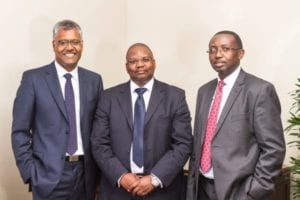Clem Sunter recently raised the probability of South Africa falling into a“Failed State” scenario from 10 to 15% following the passing of the Secrecy Bill.
According to Clem Sunter, the passing of the Secrecy Bill could cause a massive leap in corruption as there will no longer be the counterbalancing fear of exposure. With the recent exposure of corruption in the construction industry, one might also then ask: where were the media for the seven years? Well, last week we were listening to Consulting Engineers South Africa (CESA)’s newly appointed CEO Lefadi Makibinyane, and it was refreshing to hear his take on what the industry itself can do about corruption and the important role played by consulting engineers. Corruption: a crime against humanity Makibinyane believes that corruption destroys value and compromises quality of service by denying the community delivery of service and efficient infrastructure. “It is a crime against humanity and must be uprooted at all costs. The Engineering profession promotes ethical behaviour and conduct as an integral principle of technological work and service. The work of an Engineer centres on harnessing the might of science for safe human use and benefit within the constraints of the natural environment. One cannot achieve any quality of service as an engineer if you are corruptly natured; hence fairness and equality is a prerequisite requirement for the development of an engineer”. He cautions that any consulting engineering member firm caught participating in corrupt activities shall not only lose their membership of CESA but their work and existence as a firm. CESA will ensure that such a member gets blacklisted on the National Treasury database and gets removed as a vendor for Consulting Engineering Services from the databases of both public and private sector clients.Quality education
“Obviously, the quality of education which gives young people the ability to fulfil their individual goals is paramount,” Clem Sunter. Although Makibinyane shares this view with Sunter, he also emphasises the intrinsic role of personal ambition: “As a young boy, my ambition was to succeed against all odds. I was always top of my class and pushed hard to achieve greater heights. After a reality check, I discovered that chemical engineering was the only engineering field that will optimize my competence level and challenge me above my intelligence,” declares Makibinyane. Makibinyane holds a Bachelor of Engineering Degree with Honors (Chemical Engineering) from the University of Teesside, Middlesbrough, in the United Kingdom, a post Graduate Certificate Management Development Programme Program (in Project Management) as well as Masters in Business Leadership from the University of South Africa School of Business Leadership, in Pretoria. Makibinyane has worked for the City of Tshwane as a strategic executive director in the services infrastructure department, West LB AG as a director, Vice President of Fieldstone Africa and also held various senior positions at Sasol, Industrial Development Corporation, Engine Refinery, Anglo American Coal Division, Nampak, South African Breweries as well as the Export Credit Insurance Corporation of South Africa.






